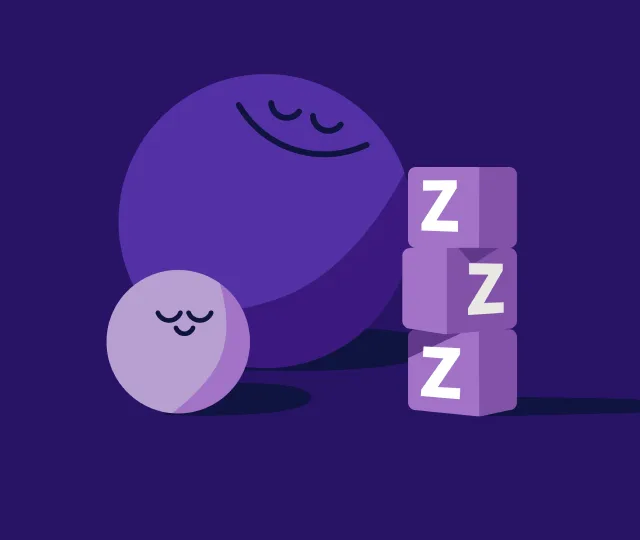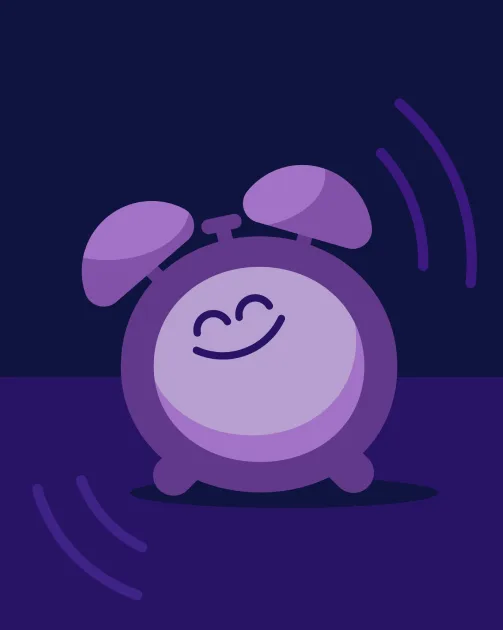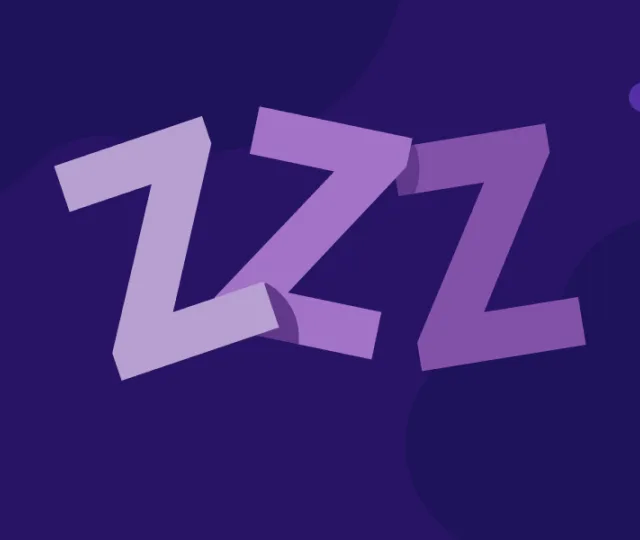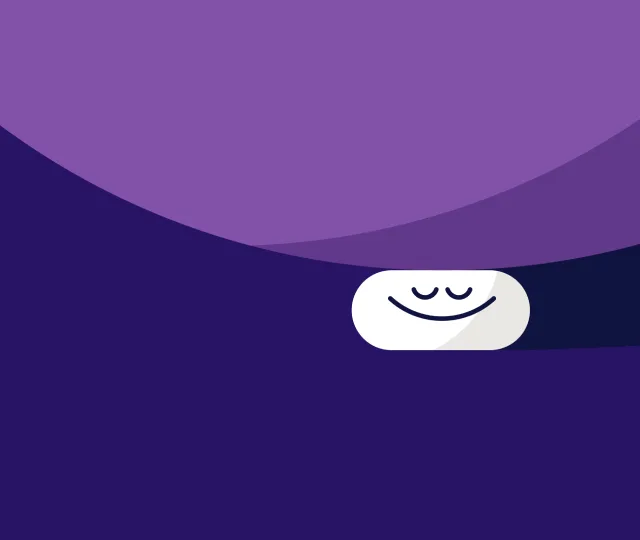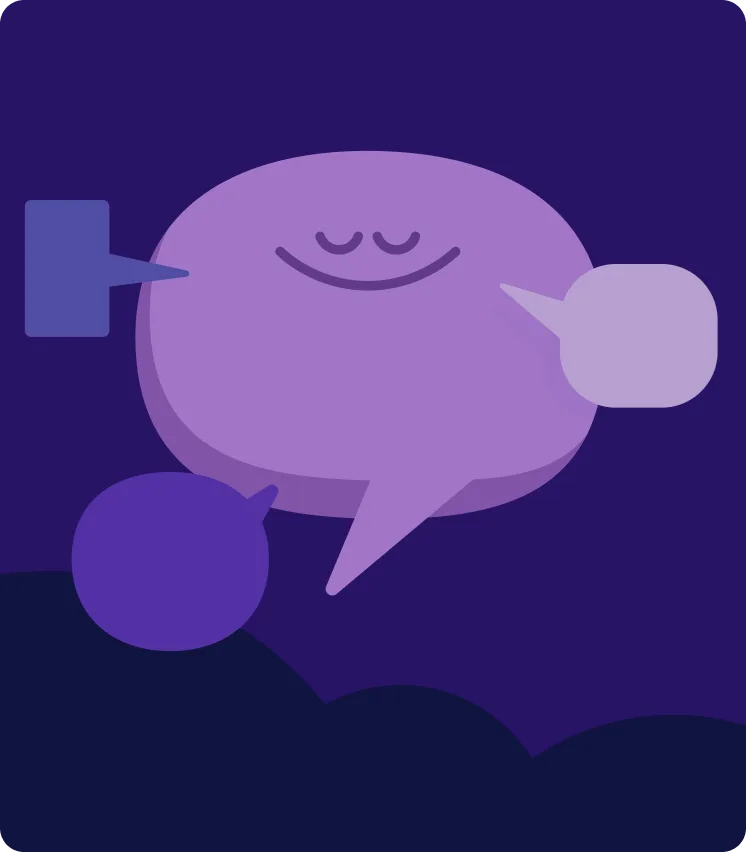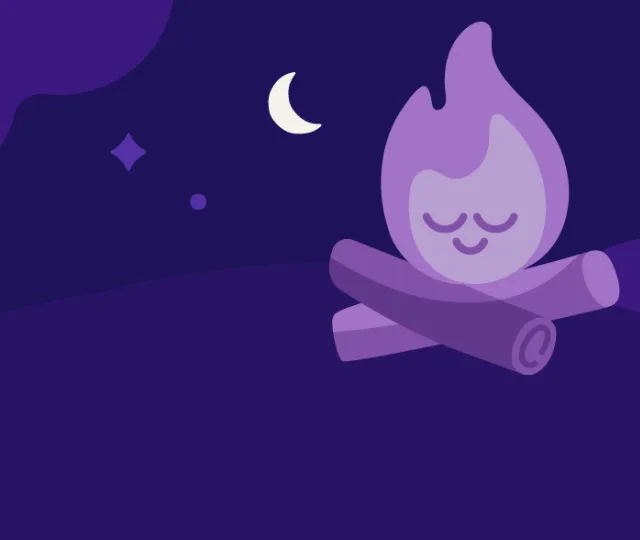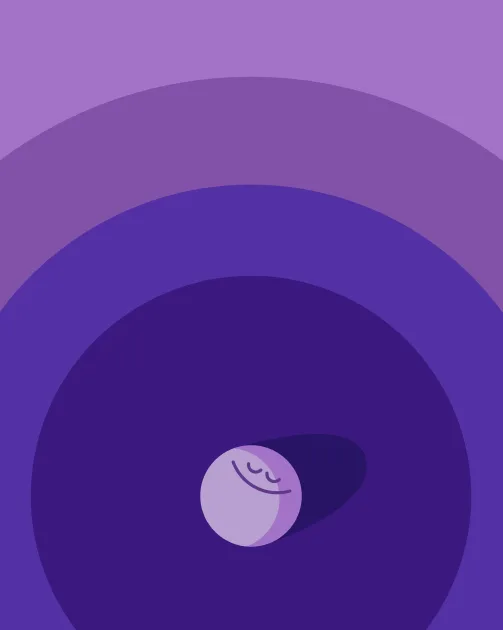Trouble staying asleep
By Your Headspace Mindfulness & Meditation Experts
Apr 27, 2021
You feel yourself waking and open your eyes, expecting to see morning light peeking through the blinds. Alas, you’re met with pitch-black darkness: you’ve woken up in the middle of the night again.
You might stretch, sip on water, get out of bed for a bit, then tuck yourself in and drift back to sleep. That’s common behavior — and nothing to stress about if you’re managing to get the CDC-recommended 7-9 hours of sleep each night. It’s likely these up-at-night episodes aren’t affecting your overall quality of life.
But if you’re having trouble falling back asleep — and unable to sleep soundly until daybreak or your alarm rouses you up — you might take that as a sign there’s room to improve your relationship with sleep. A good place to start? Learning how we’re wired to sleep and how our habits might be sabotaging our basic need for quality rest.
DISCLAIMER: General meditation practice and apps like Headspace are not a replacement for or a form of therapy, nor are they intended to cure, treat, or diagnose medical conditions, such as sleep disorders. Meditation can, however, be a component of an overall treatment plan when monitored by a healthcare professional.
Create the ideal atmosphere for a restful night’s sleep
Relax with the sounds of a gentle wind rustling trees while a guitar melody plays softly.

Sleep Music: Singing Pines
45 mins
Problems staying asleep
The issue of waking in the middle of the night might well be rooted in history, because it turns out that humans used to sleep in two shifts. Charles Dickens wrote about it, Virgil mentioned it, and Homer even included it in The Odyssey.
History professor A. Roger Ekirch unearthed these writings after discovering how sleeping for two periods of four hours, with an hour or two spent awake in between, was once an “unremarkable” facet of everyday life. What we might describe as something like power napping, they called it first sleep and second sleep.
This “bimodal sleeping” went like this: people went to bed as the sun set, slept for four hours, and woke for a bit, engaging in conversation or activities like reading, writing, sewing, or sex … and then went back to bed until the sun came up.
What this suggests, as confirmed by this National Institute of Mental Health study, is that our natural sleep cycles sync with Mother Earth’s cycles of light and dark. So it follows that artificial light — emitted from lightbulbs or our devices — can have a disruptive effect on our sleep rhythms.
Examining your habits and health
If you have difficulty staying asleep, the first thing to look at is your own habits, especially when it comes to the use of technology. “We know there is a correlation between smartphone use and insufficient sleep among teens,” says Garrett Hisler, lead author of the 2019 National Health Interview Study. “If we’re on our phone before bed, or received alerts in the middle of the night, that can make it harder to fall asleep and stay asleep throughout the night,” he adds.
Once you’ve positively modified your habits with using your phone before bed, and you’re still waking up often and having trouble going back to sleep, it might be time to turn your attention to your overall health. Mild sleep apnea, anxiety or depression, chronic pain —among other health conditions — can lead to middle-of-the-night wakeups. Always consult with a medical health professional to determine if anything unseen is afoot.
If you’ve gotten an all-clear from your doctor, try investing in your sleep hygiene. Because paving the way for better sleep may simply be a matter of adjusting additional habits, both during the day and before bed, that directly impact your ability to catch quality of Zzzs.
More often than not, medical issues, unhealthy bedtime routines, and lifestyle choices provide the prime reasons for disturbed sleep. So when you’ve examined possible root causes, what else can you do?

Helping with trouble staying asleep
When you find yourself unable to fall back asleep, it is easy to start overthinking. When that happens, the mind kicks into gear, the frustration mounts, and you’ve entered a vicious cycle where the body craves sleep, but the mind won’t let it happen.
All is not lost: there are easy tips for falling back asleep that are worth trying. Whether it’s relaxation techniques, breathing exercises, placing thoughts on paper, or listening to music, these tips are designed to distract and calm the mind.
Once we understand the mind is central to troubles around falling back asleep, we better understand how we can best prepare the mind for bed.
The Headspace app has a dedicated exercise that is designed to help you fall back to sleep, like SOS meditations to help calm you down and drift off after a sudden wakeup.
It also has an entire Sleep by Headspace collection that is intended to help you rediscover quality sleep. Sleep has its own in-app category, featuring single meditations, sleep courses, sleep music, and sleepcasts, which turn traditional storytelling on its head to create a non-linear narrative that is meant to induce sleep.
A regular daily meditation habit can go even further, training your mind to create an environment that’s conducive to rest by changing your relationship with sleep. Headspace’s 30-day Sleep course does just that with morning or afternoon meditations paired with specific nighttime exercises that can help you stop trying to force sleep and instead, learn to sit calmly with your thoughts and drift off.
The practice pays off. According to one study, it was found that using the Headspace app reduces stress by 11% in 10 days, and 33% in 30 days. Meditation is simply about observing the mind and detaching from the thought patterns that usually keep you awake. The moment you realize you have the ability to step away from the thinking mind is the moment you start making a step in the right direction.
By learning to rest your attention on the breath instead of your thoughts, you invite in the possibility of the best night’s sleep you’ve ever had.


Sleep made simple
- Find your perfect bedtime routine with hours of relaxing music, sounds, and stories to choose from
- Get more restful sleep with our Sleep Health course: exercises developed with leading sleep scientists
- Feel your best from morning to bedtime with access to hundreds of stress-relieving meditations
Annual - billed at $69.99 USD/yr
14 days free
$5.83 USD/month
Monthly
7 days free
$12.99 USD/month


Stay in the loop
Be the first to get updates on our latest content, special offers, and new features.
By signing up, you’re agreeing to receive marketing emails from Headspace. You can unsubscribe at any time. For more details, check out our Privacy Policy.
- © 2025 Headspace Inc.
- Terms & conditions
- Privacy policy
- Consumer Health Data
- Your privacy choices
- CA Privacy Notice
